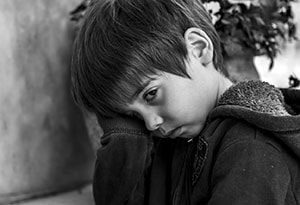“Based on what you have shared with me today, I am going to have to call Child Protective Services.”10/15/2020 By Sybil Cumming, MA, LPC, ACS  “Based on what you have shared with me today, I am going to have to call Child Protective Services.” This sentence will put the fear of God into any parent’s heart. “They are going to take my children” may be the first coherent thought after that gut-wrenching feeling. It doesn’t matter if you have had experiences with child protective services (CPS) in the past or if you have never even known anyone who has had any contact with them before. This sounds scary. As mandated reporters, it is our job to call CPS if we suspect that there is a situation when children are being put in harm’s way. It is not our job to investigate the situation and make the determination if, in fact, these children are at risk for abuse, neglect, or even death. It is solely our job to make the phone call.
0 Comments
By Abby Esquivel, LCSW, therapist and owner of Be and Belong Counseling LLC.  As a child therapist specializing in trauma, I have heard the implications of domestic violence often dismissed from caseworkers, caregivers, and agencies alike in a multitude of settings: “It was just DV.” “The child didn’t even witness the abuse.” “S/he was just a baby when removed from the home.” I can see where people are coming from. It could seem that the child who has “only” witnessed or experienced living in a home with domestic violence is surely not as traumatized and affected as a child who was personally abused. The truth is, we now have research that confirms the opposite. The most significant psychological outcomes down the road are associated with children who grow up in homes with domestic violence (Grant, 2019). This means that to experience physical abuse is actually BETTER, on a neurological level, for the child to make sense of and heal from than growing up in a home with intimate partner violence. Deep breath. Let’s back up and consider child development. In a healthy child-parent relationship, a child would have a need and the need would be met by the parent. This pattern occurs a million times over and over, and it’s what creates secure attachment. Children feel safe, know their voices matter, and their physical and emotional needs are cared for. When a child is reaching out for help and their caregiver is hurt or is the source of their stress, then the child is left without supports. This causes severe neurological disorganization and would be considered an attachment rupture, or attachment injury. |
AuthorSybil Cummin, MA, LPC, ACS Archives
February 2021
Categories
All
|
